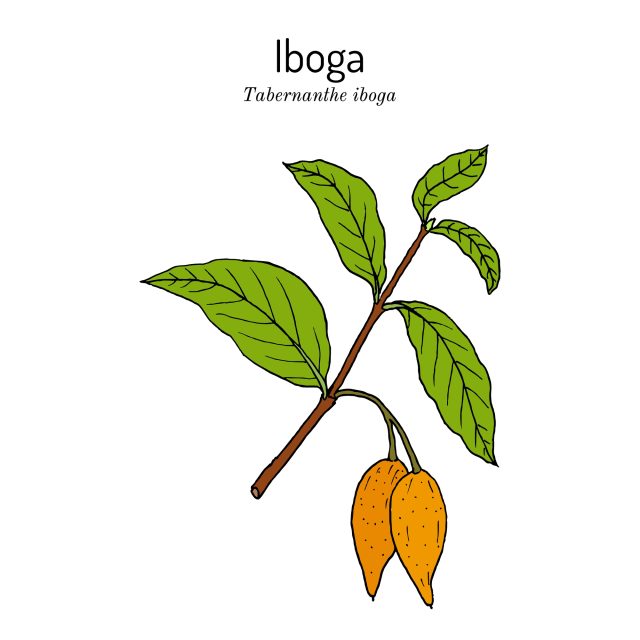
Kevin Franciotti’s heroin addiction was consuming his life. Desperate to help their son, his parents agreed to send him to an ibogaine therapy program in Mexico.
He arrived at the clinic in La Misión, slept, and, the following morning, ate his last meal for the next 24 hours. A nurse gave Franciotti an EKG to make sure his heart was healthy enough for the medicine. And then, finally, sometime around sunset, he consumed it — two capsules of extracted ibogaine — 12-methoxyibogamine, a psychoactive alkaloid derived from the West African shrub iboga — and settled in for his journey.
Within the hour he noticed a weird buzzing in his ears. Within two, he was experiencing what he would later call “the fireworks show.”
“In my mind there’s a vision like I’m being launched through a worm-hole which spits me out in what looks like outer space,” Franciotti wrote, reflecting on his experience for the Multidisciplinary Association for Psychedelic Research (MAPS). “I’m capable of an easy maneuverability where I’m in complete control of my thoughts, and yet I’m experiencing vivid, fluidly changing visions corresponding to every thought.”
Then came the hard part, he says, the darker, more personal, reflective, indescribably uncomfortable part of the trip — the part his nurse said “would keep you clean.”
Franciotti describes it as an extremely powerful experience that changed his perspective on life and helped him deal with many of the demons driving his addiction. More than four years later, he says he’s still abstinent.
Ibogaine is classified as a Schedule I narcotic by the federal government, even though it has almost no recreational appeal. It’s proven to be remarkably well suited for helping addicts overcome cravings and even prevent relapses. Clinics like the one Franciotti went to in La Misión exist just across our southern border with Mexico and in places like New Zealand. Some are operated by locals. Others are run by American ex-pat clinicians — doctors who saw potential in this form of treatment but couldn’t provide it in their own country.
In recent years, thanks to the University of California Davis (UCD), University of California San Francisco (UCSF), and MAPS, research is starting to support the use of ibogaine therapy to treat fentanyl, heroin, alcohol and other substance addictions. Which is why some states, including Colorado, are starting to legalize its therapeutic use.
Peer-reviewed research shows ibogaine increases the level of a brain protein known as glial cell line-derived neurotrophic factor, or GDNF. Separate research had already associated the protein with decreased alcohol consumption.
“By identifying the brain protein that ibogaine regulates to reduce alcohol consumption in rats, we have established a link between GDNF and reversal of addiction,” said Dorit Ron, UCSF associate professor of neurology and the principal investigator at the Gallo Center. “[It’s] knowledge of a molecular mechanism that should allow development of a new class of drugs to treat addiction without ibogaine’s side effects.”
In 2017, MAPS-sponsored ibogaine researcher Thomas Kingsley Brown took it beyond mice and rats — he conducted his observational study on patients at the La Misión ibogaine clinic in Mexico. And Franciotti was one of his test subjects.
That study concluded that ibogaine has a “substantiated treatment effect in opioid detoxification” and that it “provided distinctive benefit for individuals with histories of previously unsuccessful treatment.”
“About 90% of the people in the study had a dramatic reduction in their withdrawal symptoms at the point when you’d expect they’d be at their worst,” Brown told the BBC of his study.
In 2020, UCD published one of the most recent peer-reviewed ibogaine studies. This one aimed to make a synthetic analog to GDNF that would mimic ibogaine’s addiction treatment qualities without producing hallucinations. And the scientists were successful. They engineered a new synthetic molecule they called “tabernathalog” (TBG), which not only decreased addiction urges and relapse tendencies in mice but also increased the formation of new dendrites (or branches) in nerve cells.
However, many advocates for ibogaine therapy maintain that the psychedelic journey is one of its most essential and effective parts.
Even with the annual death rate for opioid drug overdoses surpassing 100,000 people a year, ibogaine remains federally criminalized in the U.S.
But not here in Colorado. As part of the Natural Medicine Health Act of 2022, Colorado voters legalized psilocybin, DMT, mescaline and ibogaine. By 2026, state-certified clinics will be able to start administering ibogaine addiction therapy here.
And people like Franciotti won’t have to travel abroad to access this form of therapy any longer.














